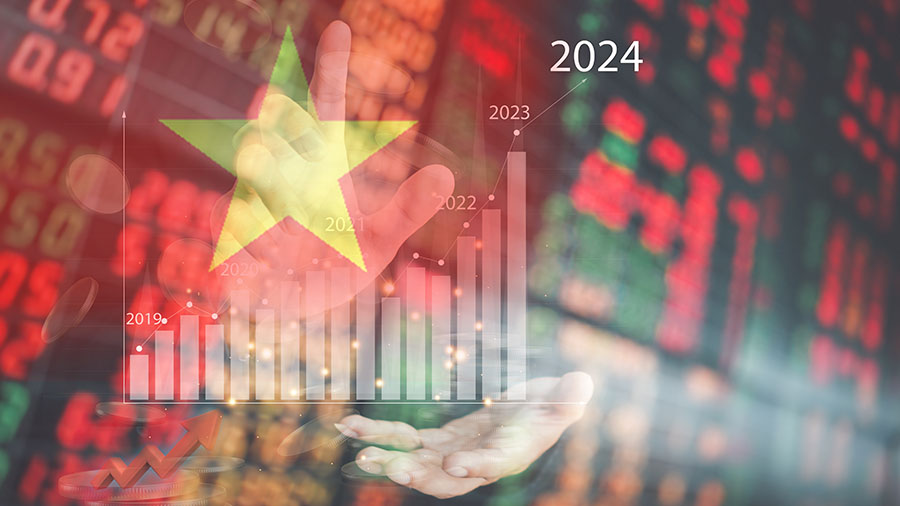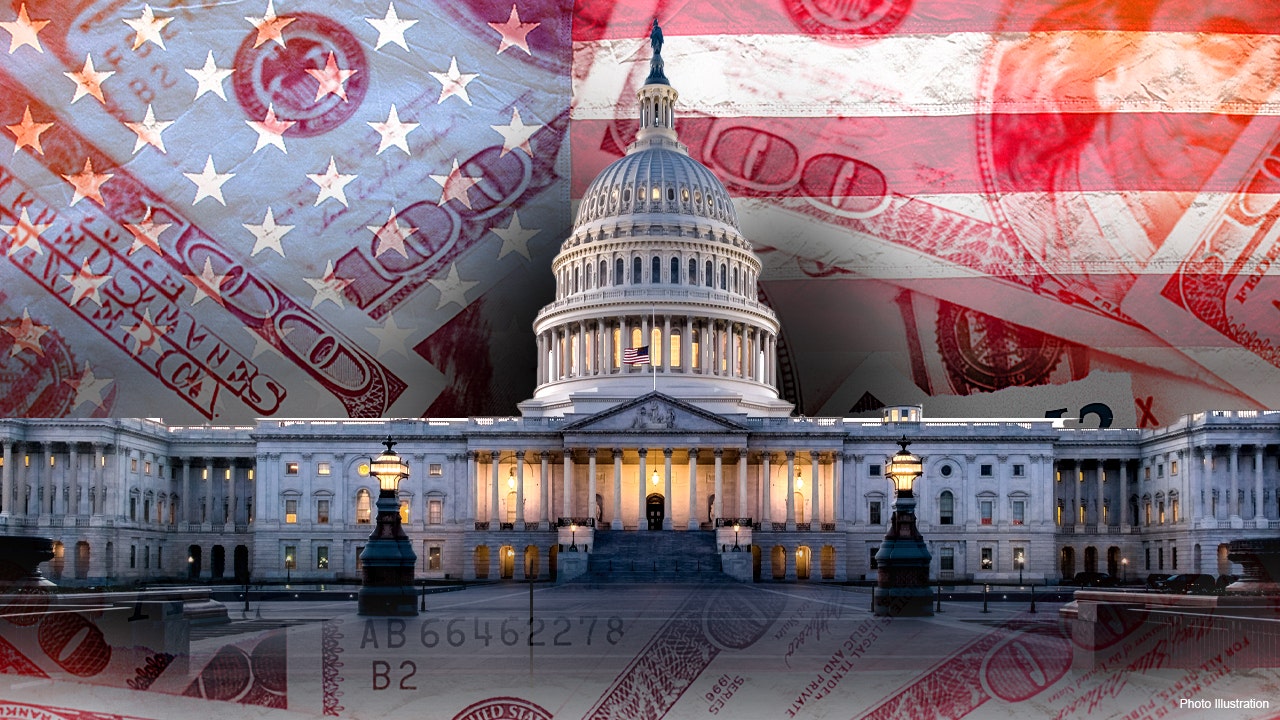Bussiness
US Considers Vietnam Market Economy Upgrade: Implications

The U.S. is in a dilemma about whether to upgrade the non-market economy status of Vietnam to that of a market economy. This would align with President Joe Biden’s goal to make the Southeast Asian manufacturing hub a ‘friend-shoring’ destination for the U.S. amid efforts to diversify supply chains away from China. If the status upgrade is accepted by the U.S. Department of Commerce, it will mean an end to high tax (anti-dumping and countervailing duty) on Vietnamese imports in the U.S.
U.S. President Joe Biden’s efforts to strengthen ties with Vietnam faced a hurdle this week as discussions unfolded regarding the potential upgrade of the country to market economy status.
The move, aimed at reducing anti-dumping duties on Vietnamese imports, has sparked debate among trade experts, highlighting the delicate balance between strategic alliances and domestic interests.
The U.S. Department of Commerce will complete their review in late July this year.
Key points of contention
At the heart of the matter lies the question of whether Vietnam, which is governed by the Communist Party of Vietnam (CPV), has transitioned sufficiently towards a market-driven economy. Advocates, including representatives from Vietnam’s Ministry of Industry and Trade (MOIT), point to the nation’s progress across various economic indicators, arguing that it meets the criteria set by the US Commerce Department for such a status upgrade. They emphasize Vietnam’s strides in areas like currency convertibility, labor rights, and openness to foreign investment.
However, opponents, such as U.S. steelmakers and agricultural groups like the Southern Shrimp Alliance, have voiced concerns over the potential impact on American domestic industries already grappling with competition from Vietnamese imports. They are cautioning Biden against premature recognition of Vietnam as a market economy, citing ongoing state intervention and unfair trade practices.
Also central to the debate are the broader geopolitical implications, namely Vietnam’s deepening economic ties with China. Proponents of the market status upgrade want to foster closer economic relations with Vietnam as a strategic counterbalance to China’s influence in the region. They highlight Biden’s efforts to elevate U.S. bilateral ties with Vietnam to a comprehensive strategic partnership during his visit to Hanoi in 2023 and initiatives by U.S. Treasury Secretary Janet Yellen to promote Vietnam as an alternative manufacturing hub to reduce dependency on China.
Companies like South Korean giant Samsung Electronics, a major investor in Vietnam, echo the sentiment, stressing the country’s role as a stable and reliable partner in global supply chains. Recognizing Vietnam’s market-oriented reforms will ultimately benefit the U.S. economy by diversifying supply chains and reducing reliance on China. Moreover, since the normalization of relations between the two countries in 1995, major U.S. corporations, including Intel, Cargill, Nike, AES, Murphy Oil, First Solar, Boeing, and Apple, have significantly expanded their investments in Vietnam.
The decision on whether to grant Vietnam market economy status remains imminent and could yet be impacted by U.S. domestic political considerations in an election year. For one, the fifth most populous U.S. state of Pennsylvania is traditionally a swing state and Biden will be keen to gain votes from steelworkers. Second, there are concerns over Chinese firms circumventing U.S. tariffs by routing exports through Vietnam operations.
In any case, if Washington DC decides to change Vietnam’s non-market economy (NME) status to a market economy label, there will be significant implications for trade relations and broader geopolitical dynamics in the Asia-Pacific region.
Start exploring
Why is the status upgrade to market economy important for Vietnam?
Vietnam is among 12 countries with the designation of a non-market economy that are subject to anti-dumping and countervailing duty law.
Per U.S. law, a non-market economy is defined as any foreign country that the U.S. Department of Commerce determines does not adhere to market principles regarding cost or prices, leading to the sale of goods within that country failing to reflect their fair value.
According to the U.S. Department of Commerce, under section 771(18) of the Tariff Act of 1930, the following countries are currently designated with the NME status – Armenia, Azerbaijan, Belarus, China, Georgia, Kyrgyz Republic, Moldova, Russia, Tajikistan, Turkmenistan, Uzbekistan, and Vietnam.
U.S. Commerce Department Criteria for Determining Market Economy Status
Six factors are considered by the U.S. commerce department in determining market status when conducting anti-dumping investigations, namely:
- The extent of currency conversion within the country.
- The level of wage determination freedom through negotiations.
- The opportunities for foreign companies to engage in joint ventures or investments.
- Government oversight concerning production materials.
- Government control over resource allocation and enterprise pricing and output decisions.
- Any other relevant factors determined by the governing authority.
Moreover, the Department of Commerce may classify certain industries as operating under market conditions while applying the NME evaluation method to others.
The Anti-Dumping Agreement of the World Trade Organization (WTO) mandates member countries to employ verified cost and price data from investigated companies to calculate margins and anti-dumping duties. However, alternative methods, including using substitute data from third countries, are permitted under specific circumstances. The U.S. applies this approach to investigated companies from non-market economies, resulting in higher anti-dumping duties on imports from such countries.
To determine the appropriate nationwide anti-dumping duty, the Department of Commerce identifies the market economy closest to the NME under review based on the World Bank’s assessments of gross national income at purchasing power parity.
For example: The U.S. assesses the value of a product intended for import from a non-market economy like Vietnam by referencing a third country – a market economy such as Bangladesh. It uses the perceived product value in Bangladesh as a benchmark. Consequently, this benchmark is presumed to represent the production cost for a Vietnamese company, without consideration for the company’s actual cost data.
Vietnam’s bilateral trade with the U.S.
Vietnamese exports to the United States, particularly in textiles, electronics, and agriculture, have resulted in a substantial trade surplus of US$104 billion for Vietnam, as per U.S. official data for 2023. Electronics and solar panels constituted a significant portion, with a notable increase from US$3.2 billion to nearly US$5 billion. Meanwhile, the U.S. exported goods worth US$9.81 billion to Vietnam that year.
In the first quarter of 2024, U.S. exports to Vietnam amounted to US$2.66 billion, while imports from Vietnam stood at US$29.09 billion, resulting in a trade surplus of US$26.42 billion for Vietnam [U.S. Foreign Trade data]. Key Vietnamese exports to the U.S. in Q1 2024 per media reports included high-tech products like consumer electronics and smartphones, along with garments and footwear.
Vietnam’s ongoing infrastructural and business environment reforms offer growth prospects for U.S. firms. Foreign direct investment from the U.S. in Vietnam rose to US$3.5 billion in 2022, reflecting a 26.8 percent increase from the previous year, according to the Office of the United States Trade Representative (USTR).
About Us
Vietnam Briefing is published by Asia Briefing, a subsidiary of Dezan Shira & Associates. We produce material for foreign investors throughout Asia, including ASEAN, China, and India. For editorial matters, contact us here and for a complimentary subscription to our products, please click here. For assistance with investments into Vietnam, please contact us at vietnam@dezshira.com or visit us at www.dezshira.com.
Dezan Shira & Associates assists foreign investors throughout Asia from offices across the world, including in Hanoi, Ho Chi Minh City, and Da Nang. We also maintain offices or have alliance partners assisting foreign investors in China, Hong Kong SAR, Dubai (UAE), Indonesia, Singapore, Philippines, Malaysia, Thailand, Bangladesh, Italy, Germany, the United States, and Australia.











